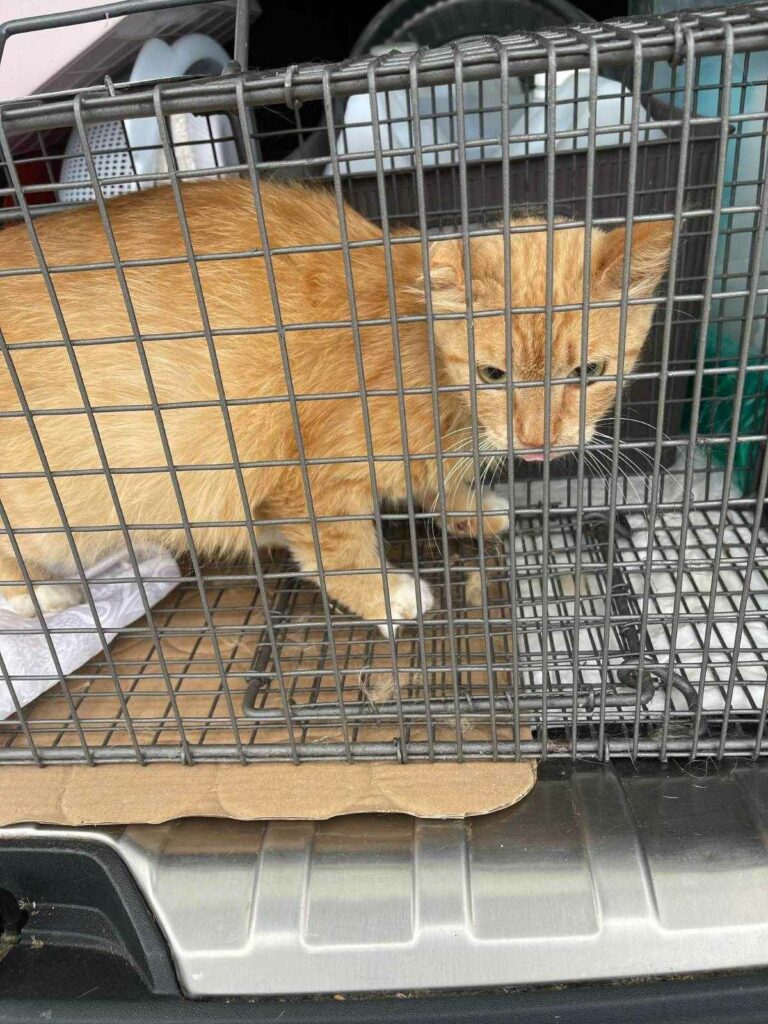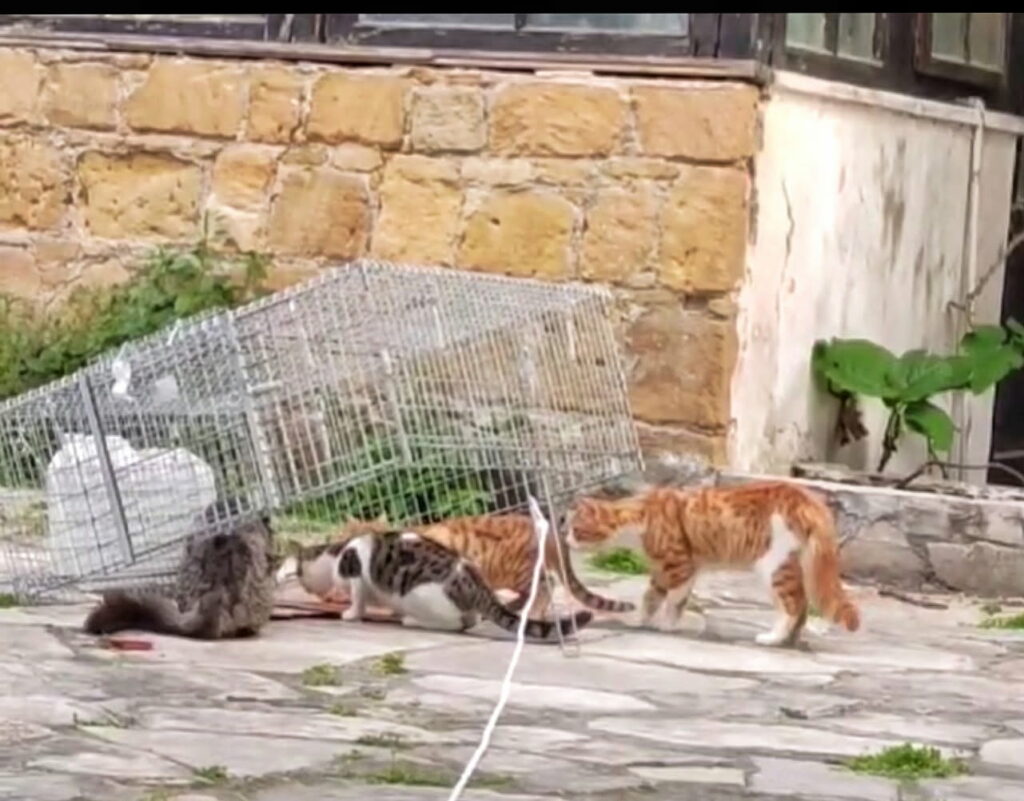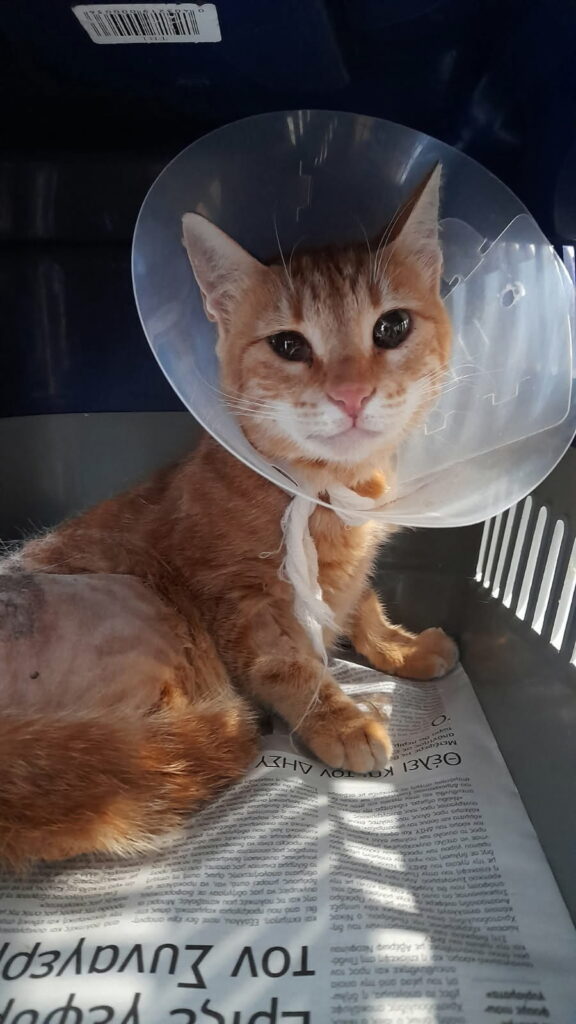Filenews 27 October 2025 - by Elena Loizidou
Cat Alert Nicosia is a group of people who have been on the front line for years almost every day of the year for all aspects of the lives of stray cats. A few months before the next parliamentary elections, the issue of stray cats comes to the surface again. This time, we will tell the bitter truth: The problem of stray cats is not going to be solved because we simply do not want to solve it.
The decision of the Republic of Cyprus several years ago to close the government veterinary clinics where people were able to sterilize their cats completely free of charge and all year round, and the subsequent agreement for the purchase of sterilization services from private veterinary clinics, led to the increase of the population of stray cats in unprecedented numbers, especially compared to the area of the island. A huge number of cats now live in the homes of citizens, a problem that the competent authorities will soon be called upon to deal with since the issue of public health will begin to arise. In the last year and a half, the fees at most private veterinary clinics have doubled and tripled. In the vast majority of private clinics, the sterilization of a male cat reaches and exceeds €50 and a female €85-€120.

Stray, semi-owned and owned cats all fall into the same category, regardless of the fact that only the third category has guardians. This is perfectly understandable, since a private veterinary clinic is a for-profit business with operating costs and the goal of profitability.
Unfortunately, however, for everyone and especially for the municipalities, a large portion of our fellow citizens who take care of semi-owned cats and who in previous years undertook the sterilization of mainly female cats, now the only phrase that is heard is "I only feed them, I cannot sterilize them", arguing the increase in the price of sterilization.
Stray cats are on the rise because they are not neutered! With the free vouchers of the municipalities and the state, the vast majority of owned and semi-owned cats are sterilized. So, the problem remains and is perpetuated.
When the municipalities years ago had agreed to take over the welfare and control of stray cats, in addition to financial support, they had agreed that they would provide the human resources and equipment to help trap the wild stray cat that gives birth all year round. And we all know very well that the town halls also transferred this responsibility to the volunteers of the animal welfare organizations. The same applies to Veterinary Services. They distribute coupons for sterilization of stray cats and finally the friendly, the owned, the ones that you can manually place in a transfer basket are sterilized.
In the last year Cat Alert Nicosia has withdrawn its interest in participating in the government voucher program. As in all professions, there are good and bad professionals in veterinary medicine. We find it unacceptable to be forced to take cats to a vet who does not inspire confidence in us. In addition, the vast majority of private veterinarians participating in the program request a pre-arranged appointment. This means that only owned cats are neutered, since with strays there is no such possibility.
Trapping stray cats requires above all good, large and expensive equipment, with the ability to trap a large number of animals in a short period of time. The success of the sterilization program in an area must exceed 90%, since otherwise within a short period of time with successive births, there will be the same or even worse situation.
A volunteer is an employee, he is a family man with professional, social and family obligations. For this, traps usually take place late at night, on Sundays or holidays. When there is no direct delivery access of these animals to a veterinary clinic, the volunteer must take them home, accommodate them by disturbing the tranquility of their own home, until the next working day to transfer them to a private veterinarian. In periods of bad weather conditions (heavy rainfall, too cold or too hot), he may need to host them again after their sterilization, until their full recovery, since in a private veterinary clinic the stay time is one night.

Suggestions on what needs to be done to address the issue
As a result of all these difficulties, the enthusiasm of the offer is replaced by discomfort, fatigue and in the end by abandonment of the effort. To all this, add the discarded newborns, the sick, the beaten by cars. In the end, in Cyprus, whoever deals with strays dies poor!
Cat Alert Nicosia proposes that any funds approved every year should be given for the operation of non-profit clinics (governmental, municipal or animal welfare organizations in collaboration with municipalities) with the employment of veterinarians by the state, for the year-round sterilization of stray and semi-owned cats. Also, the employment by the municipalities of people who, with the appropriate equipment and in cooperation with animal welfare organizations, could contribute to the trapping of stray cats and their transfer to these clinics. Because the problem is focused exactly there, that is, that stray street cats are not sterilized.
It would be important to introduce legislation on cats to prevent newborn cats from being abandoned and, possibly, to oblige those who feed kittens outdoors to neuter them. A prerequisite, of course, would be access to sterilizations at zero cost, so that this is possible. Stray cats cannot be sterilized in private veterinary clinics and the bill should be borne by the citizens of this country.
In addition, it could be considered that large voluntary animal welfare organizations abroad that offer sterilization, deworming and marking programs for stray animals completely free of charge, could come to Cyprus to perform sterilizations. Bulgaria, Romania, Portugal, Spain, Serbia, Albania and the latest glaring example is Greece, where dogs and cats are sterilized completely free of charge by sponsorships and volunteer veterinarians abroad.

The latest proposal of the Veterinary Association, which reaches €3 million per year, is financially unfeasible, since once again the pockets of citizens will be burdened by all the diseases and veterinary care that a stray cat will need during its lifetime.
Strays are the responsibility of the state. The state is not exempt from its responsibilities by sterilizing 2,000 cats out of the almost 2 million that exist. Even if the fund is increased to €300,000, the 6,000 cats that will be sterilized nationwide per year are a drop in the ocean. If the state continues to be theoretically present in this issue, but essentially absent, thousands of cats in each season will die before they can open their eyes and thousands more will lose their lives from poisons.
All these years a loose policy has been followed in dealing with the problem of stray cats that simply makes the situation difficult year after year. The water is not lost because the bathtub overflowed, it is lost because no one wants to fix the tap!
*President of Cat Alert Nicosia
